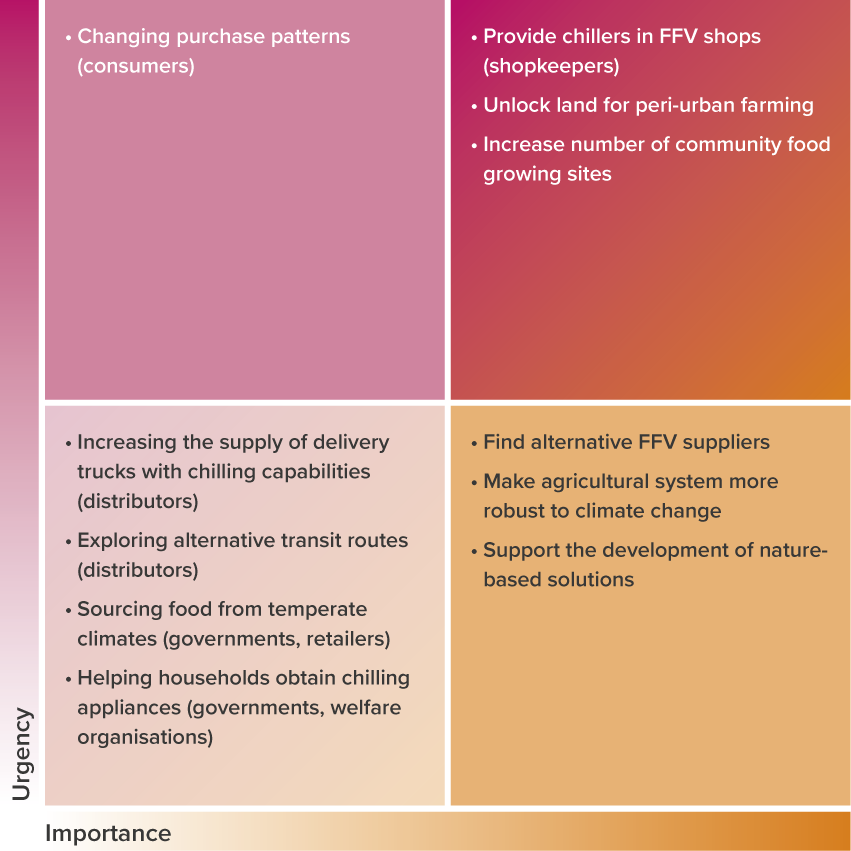Embedding food resilience in agendas such as climate, planning and health as well as addressing the overlap between income and food access could help London's complex and fragile food system better meet the needs of its growing population.
Our work
In a new report, Enhancing the Resilience of London's Food Systems, food system researchers at the University of Oxford have brought together diverse perspectives to create a set of high-level and specific recommendations to increase the resilience of a complex, dynamic, diverse and potentially fragile food system, in which 99% of the food consumed is imported from outside the capital.
The report emphasises the need to investigate and co-create multiple pathways to resilience. These pathways should be underpinned by a whole food systems approach and harness cross-cutting opportunities to ensure food resilience is successfully embedded in other agendas.
Enhancing the resilience of London's food system
Discussions with Greater London Authority’s (GLA) Food Resilience Champions Group were framed around four key resilience questions: Resilience of what? Resilience from whose perspective? Resilience to what? And resilience over what time frame? These discussions led to co-creation of three resilience strategies based on robustness, recovery and re-orientation.
Figure 1: Recovery (returning to existing outcomes)




